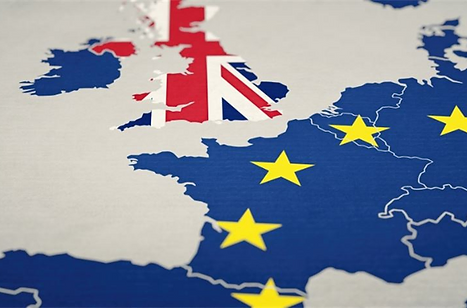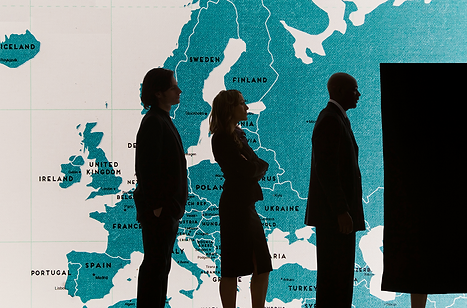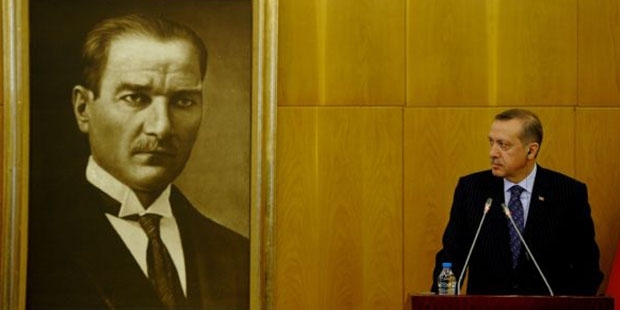
Brexit Explained: Why So Important?

Brexit, which is a portmanteau of “British” and “exit” is the withdrawal of the United Kingdom (UK) from the European Union (EU) and European Atomic Energy Community on 31 December 2020 with the power from Article 50 of the Treaty on European Union. This withdrawal is the first case in the European Union’s history. Apart from the EU’s history, the United Kingdom is the first country that leaves an economic union willingly. The main reasons behind this withdrawal vary in many different areas but most specifics are the recent refugee crises, the UK’s inability to put enough money into its monetary policies in the EU, the recent rising of racism, islamophobia, resistance in Europe.
Before moving with the withdrawal process, the history of the UK and EU must be mentioned. The United Kingdom joined the European Union on 1 January 1973. After a short time, because of the political pressure of the vetoes from Germany and France, the United Kingdom made a referendum in 1975 asking citizens whether the UK stays in the EU or leaves the union. By 67% votes, the UK decided to stay in the EU till 2016.
In June 2016 United Kingdom renewed the referendum asking citizens the same question: “Should the UK leave the EU or stay?”. Unlike the 1975 Referendum, 52% percent of the citizens voted to leave the EU. We mentioned the reasons but most of the “leave” supporters expressed that the UK will become independent again. So, this propaganda may indicate to the political pressure of 1975 still discomforts the UK citizens.
This withdrawal process has long negotiations as the EU includes crucial topics like transfer of the commercial goods, free travel of citizens. As an island country, it is easy to concretize borders but Ireland’s issue occurs at that point. Considering that the EU-UK agreement is an agreement that has been in force for a long time, a non-negotiated exit will create difficult conditions for both sides in terms of economy and citizens’ freedom. Basically, the EU agreement consists mainly of economic deals, considering that this is how the EU occurs, and Schengen Area which is established as an EU policy in 1995 we can sum up two main problems: economic impacts and freedom of citizens.
As withdrawal from the EU has a political side, it can be said that there is great political activity on the UK side. After the 2015 general election of the UK selected Prime Minister David Cameron promised for withdrawal referendum. After the presidency announced the referendum David Cameron and his party made huge propaganda advocating to stay in the EU. But after the Brexit 2016 referendum, UK Prime Minister David Cameron resigned as a reason for their failed propaganda, he was replaced by Theresa May as leader of the Conservative Party and Prime Minister. During this time, Member of Parliament Jo Cox, who found it more appropriate for the UK to not leave the EU, was killed while going to give a speech at an event against withdrawal. In November 2018, Britain and the EU agreed on a 600-page Withdrawal Agreement, that has negotiations upon issues like citizen's rights, and the Irish border. But the agreement was defeated by 432 to 202 votes which is the biggest defeat for a government in the House of Commons in recent history. May failed to get the approval of the House of Commons three times then she stepped down as party leader. The following month, Boris Johnson, a former Mayor of London, the foreign minister was elected prime minister. Probably the biggest crack is the claim that the UK could collapse. Scotland’s government is against Brexit. Formally Scotland can call a referendum to leave the UK and then apply for EU membership independently.
Economically, the referendum had negative effects on British Pound, Euro, U.S. Dollar, Australian Dollar, Indian Rupee, and Danish Krone. As the vote’s result defied expectations British Pound fall to its lowest level against the U.S. Dollar. Also, the EU has more than 40 trade agreements with 70 countries and as UK leaves the EU, agreements will be no longer in force. So, UK must negotiate new agreements with those 70 countries. Another issue is labor. Most of the UK’s young citizens are labored in member states of the EU. After the withdrawal, this opportunity will not be available for UK’s citizens.
This withdrawal made up to the agenda again as the transition period ends on 31 December 2020. UK and EU need to conclude on an agreement in terms of economy and freedoms. If there won’t be any agreement, one of the biggest economic impacts will hit both sides as border taxes will be in charge. Luckily, during the writing procedure of this article, the UK and EU signed Brexit Trade and Cooperation Agreement. 521 in favor, 73 against voted on the parliament. Brexit Trade and Cooperation Agreement consist of free trade with no quotas of goods, 25 billion pounds of “divorce bill”, end of free movement between EU members and UK, leaving of the European nationals unless they have documents for remaining. After the signature still, some of the politicians think this agreement is not sufficient for the good of the UK. Some of the deputies resigned after the signature. The political impact of the departure continues even after years.
In conclusion, the UK became the first country that left an economic union by their wishes. Brexit caused worldwide economic and local political problems. The EU and the UK signed an agreement upon the freedom of the citizens and trade topics. The success of the agreement is an arguable issue. Considering the responses Brexit seems to be on the agenda for a long time.





